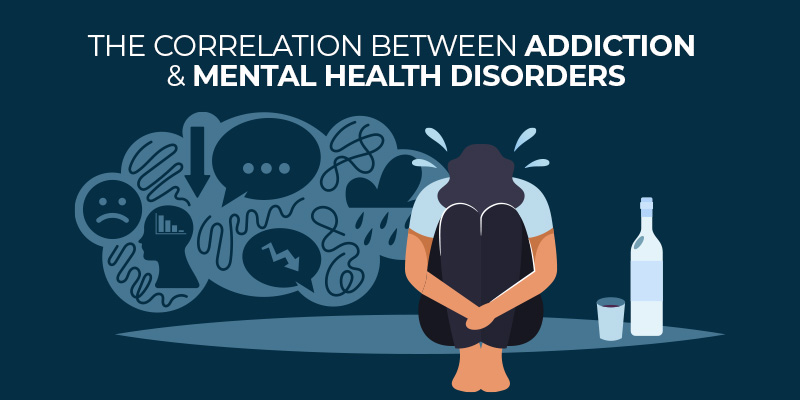Dual Diagnosis Treatment Programs
Table of Contents
An Overview Of Dual Diagnosis Treatment Programs
Our holistic approach to drug and alcohol addiction treatment emphasizes your spiritual, physical, and emotional well-being. As part of your emotional well-being, our team of licensed professionals will create a treatment plan tailored to your mental health needs. We have extensive experience treating clients with various mental illnesses, including depression, generalized anxiety disorder (GAD), and bipolar. There’s a strong link between mental health disorders and addiction, and our dual diagnosis programs treat both simultaneously.

The Correlation Between Addiction And Mental Health Disorders
According to the National Institute on Drug Abuse, there’s a strong correlation between drug and alcohol addictions and mental health disorders. Studies should show that half of the people who suffer from substance abuse also struggle with mental illness and vice versa. Those suffering from mental health disorders often turn to drugs and alcohol to cope. On the other hand, people who develop addictions first may soon experience symptoms of illness. The National Institute of Mental Health classifies substance abuse disorder as a mental disorder that leads to a “person’s inability to control their use of substances such as legal or illegal drugs, alcohol, or medications.”
Those with existing mental illness disorders may be especially vulnerable to drug and alcohol addiction symptoms. For example, many people who suffer from depression take antidepressants, such as Prozac and Zoloft. Although sufferers of anxiety and depression often turn to alcohol and drugs to socialize, it worsens their well-being. Mixing alcohol and alcohol can increase levels of anxiety and depression. Not only that, but alcohol consumed concurrently with antidepressants could trigger lethal reactions. Likewise, taking opioids with antidepressants can lead to respiratory depression.
Dual Diagnosis Evaluations
During a dual diagnosis evaluation, healthcare professionals look for key signs of substance abuse and mental health disorders. Furthermore, they gauge the overall impact of mental illness and addiction on the patient’s life. Some of the key factors considered during a dual diagnosis evaluation include:
- The individual’s willingness to undergo substance abuse treatment and enter recovery
- Whether or not the individual has a supportive environment to foster sobriety
- A history of drug or alcohol abuse that resulted in negative consequences (i.e., loss of a job or damaged relationships)
- The prospective patients could harm themselves or others
- Shows signs of mental illness that coincide with substance abuse
Signs That You Have A Drug And Alcohol Addiction
One of the first steps to recover from substance abuse is to admit that you have an addiction. However, many individuals deny their addictions because they use drugs and alcohol as coping mechanisms. For example, someone who developed post-traumatic stress disorder (PTSD) after domestic violence might drink to numb their symptoms. Unfortunately, refusing to identify as an addict and seek treatment will incontestably lead to more problems down the road.
Are you not sure if you’re suffering from drug or alcohol abuse? These are the most obvious warning signs of substance abuse:
- Ensuring that you have a continuous supply of drugs and alcohol
- Experiencing symptoms of withdrawal when you stop using
- Noticeable changes in physical appearance (i.e., poor hygiene and changes in weight)
- Poor performance at work and school
- Spending large amounts of money on a substance even if you can’t afford it
- The inability to stop using even when you’re persistent
Source: Mayo Clinic
Signs That You Have A Mental Health Disorder
From an outsider’s perspective, it’s not always easy to tell that someone suffers from mental health disorders. These disorders come in all shapes and sizes, including depression, anxiety, bipolar, psychosis, and paranoia. Unlike other illnesses, there’s no cure-all solution to mental health disorders. Treatment typically involves a combination of therapy and medication.
It can be a bit challenging to discern whether you’re suffering from a mental health disorder. Individuals often believe their mental illness is normal mental health (i.e., natural emotions) when that’s far from reality. Here’s a list of tell-tale signs that you’re suffering from a mental health disorder:
- Feeling gloomy or hopeless
- Undereating or overeating
- Low levels of energy and motivation
- Frequent feeling angry and irritable
- Cutting communication with friends and family
- Changes in your libido
Source: Mayo Clinic
How We Can Help
Here at United Recovery Project, we offer an abundance of drug and alcohol addiction treatment options for those who suffer from mental health disorders and substance abuse. You’ll begin treatment at our medical detox center or holistic alternative and then transition to a luxury rehab center. Our Picturesque South Florida locations provide the perfect atmosphere for healing and recovery. We employ a team of dedicated professionals that offer invaluable support from the first day that you walk through our doors.
Our Team Of Licensed Professionals
The faces behind the United Recovery Project come from all walks of life. Many of us are in recovery, and we understand the profound correlation between addiction and mental health. Our team of licensed professionals includes:
- A board-certified psychiatrist
- Nurses
- Nurse Practitioners
- Registered Dieticians
- Licensed mental health counselors
- Licensed clinical social workers
- Case managers
Our Therapy Programs
We offer personalized therapy programs for those suffering from substance abuse and mental health disorders. Upon entering the United Recovery Project, you’ll meet with a therapist to create a customized treatment plan before entering our luxury drug and alcohol rehabilitation center. These are just a handful of the programs that you can participate in while you receive drug and alcohol treatment:
Cognitive Behavioral Therapy (CBT)
During cognitive-behavioral therapy sessions, clients learn to identify and change negative thoughts and emotions that lead to destructive behavior.
Psychotherapy
Psychotherapy is a form of therapy in which you openly discuss your mental illness to understand better how it makes you feel and how you can find relief.
Holistic Therapy
A holistic therapy program doesn’t just focus on one aspect of your health. Instead, the program concentrates on your overall well-being (spiritual, mental, and physical).
Contact us today to learn more about our Dual Diagnosis treatment options!
- Programs
- Women’s Detox Program
- Prescription Drug Detox Program
- Opioid Detox Program
- Opiate Detox Program
- Men’s Detox Program
- Meth Detox Program
- Medical Detox Program
- Holistic Detox Program
- Heroin Detox Program
- Drug Detox Program
- Relapse Prevention
- Psychotherapy Program
- Nutritional Education
- LGBTQ-Friendly Program
- Group Therapy
- Dialectical Behavior Therapy
- Cognitive-Behavioral Therapy
- Anger Management Therapy And Substance Abuse Detox
- 12 Step
- Detox Therapy Programs
- Alcohol Detox Program
- Cocaine Detox Program
- Benzo Detox Program
- Women’s Rehab Center
- Transitional Living Program
- Transitional Living Program
- Sober Living Homes
- Residential Rehab Programs
- Residential Addiction Rehab
- United Recovery Project | Drug Relapse Prevention
- Alcohol Detox Center
- Alcohol Detox Center
- Rehab Alumni Program
- Rehab Aftercare Program
- Rehab Aftercare Program
- Partial Hospitalization Program
- Outpatient Drug and Alcohol Rehab
- Medical Detox Center
- Intensive Outpatient Program (IOP)
- Holistic Drug Detox
- Heroin Detox Center
- Heroin Detox Center
- Dual Diagnosis Programs in New Jersey
- Drug Relapse Prevention in New Jersey
- Dual Diagnosis Programs in New York
- Drug Relapse Prevention in New York
- Dual Diagnosis Programs
- Drug Relapse Prevention
- Drug Relapse Prevention
- Rehab Alumni Program
- Alcohol and Drug Addiction Aftercare Programs
- Women’s Rehab Center
- Sober Living Homes
- Residential Rehab Programs
- Dual Diagnosis Programs
- Outpatient Drug and Alcohol Rehab
- Intensive Outpatient Program (IOP) For Addiction
- Partial Hospitalization Program (PHP)
- Residential Addiction Rehab
- Holistic Drug Detox
- Medical Detox Center
